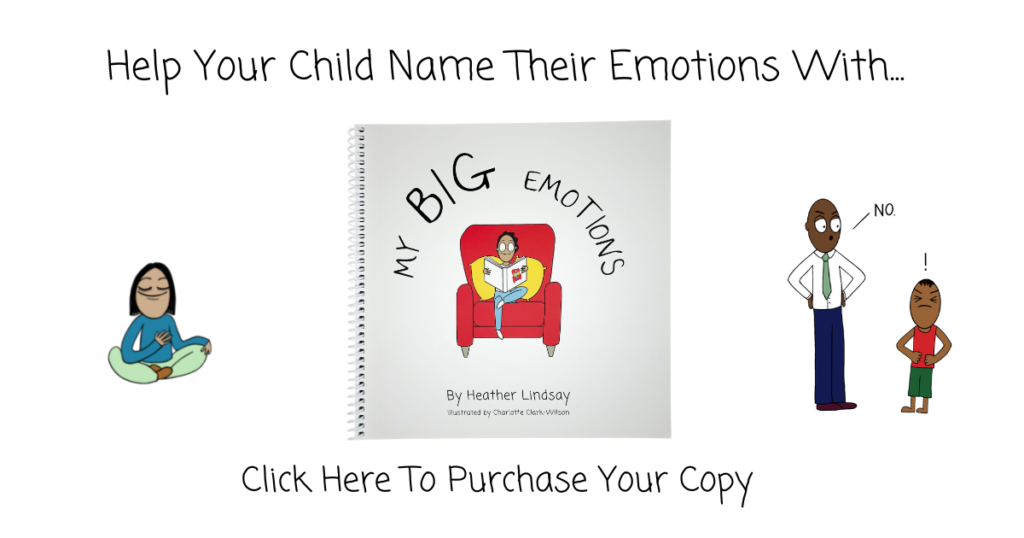We’ve all been there, it happens to all of us. Feeling frustrated can be the first step towards anger and us ending up yelling at our children. Don’t forget the guilt that happens after!
The question is then, how can we stop ourselves it before we start to fall down this cascade and end up yelling at our kids, and then feeling bad about it?
In this blog, I’ll discuss 3 easy things that all parents can do to help reduce your levels of frustration and ease the pressure you are feeling. All of these will help you avoid the anger cascade that so many of us fall into.
1. Walk Away For A Sanity Break
If you’re starting to feel frustrated, if you can hear it in your voice, or feel it in your body (often in your stomach or notice your heart or breathing quicken), it can be very helpful to walk away for a few minutes. A quick moment for us to pause and regroup can help us check how we are feeling and calm the rising levels of frustration.
If you are in a situation where your child cannot be left alone and be safe, then this might not be the best option. We always want to keep our kids safe. In a moment like this you can still take a slow deep breath and say a quick mantra or affirmation in your head. The beauty about this is that you can help doing it for as long as you need to stay with your child until you can safely step away.

A simple affirmation that may help you in the moment may be:
“Calm”
“I am feeling calm and relaxed”
It seems simple, and it is. But it can be hard to put into practice. Especially if we’re used to simply feeling cranky, frustrated and then snapping at our kids. Generally, most of us will have a moment when we realise what we’re doing and how we’re feeling. Even if we can’t step away before we go down that path, we certainly can catch ourselves and walk away then, or take that moment to start repeating a calm affirmation in our head.
There are even times I say to myself “Snap out of it Heather!” when my frustration is building. Often it’s the little push and reminder I need to take 5.
If you have been able to leave your kids in a safe space and walk away then try not to return too early. This is a mini sanity break, so make it count! Again, of course if you need to return to keep your child safe or the situation escalates and needs a parent, then don’t wait to go back. But, remember to keep saying that affirmation in your head!
There will be times that you forget to do this. That is okay, and to be expected. If you’re in the habit of letting frustration and anger run loose, then it can take a while to change our behaviour. Keep going with it. And always give yourself a pat on the back when you do catch yourself!
2. Gain Perspective
Often when we’re feeling frustrated at our children, we’re looking at them, their behaviour, what they are doing and what they should be doing, from the perspective of an adult. It’s helpful to shift our perspective to what is happening for our child in the moment.
There is one statement I often repeat to myself when any of my children’s behaviour is going a little out of what’s appropriate for our family rules. It is:
They are not giving me a hard time. They are having a hard time.
When our children’s behaviour is escalating, maybe they are yelling or speaking rudely or fighting with their brother or sister, something is not right for them. They are not feeling at ease or comfortable in the situation. They are having a hard time. And because they are children and are still learning how to control their behaviour in response to how they are feeling and come and ask for help, it often escalates.
I had a weekend away camping once with friends and my son who was 5 at the time was having a really hard time with the new surroundings, the dynamics with other children he wasn’t familiar with and not having his own private space to retreat to when he needed. Every time I heard him start to get angry at the other kids and at the same time feel my frustration building I knew I had to walk to help address the situation. I would repeat “He’s not giving me a hard time, he’s having a hard time” over and over in my head. It didn’t solve the situation with how my son was feeling and behaving, but it certainly help me keep my cool.

All parents want to teach our children empathy and have them learn how to solve problems in the moment. When we ask ourselves what is going on for our child, it helps us have empathy for them. If we can demonstrate having empathy for them, then we role model the same behaviour we want to be teaching our child. It helps get us out of a head and into our heart.
3. Get Some Help
Parenting is hard work! Dealing with our the daily tasks of raising children, being a role model, teaching positive behaviour, managing our own lives, external stressors, family or relationship stress all can create a state of chronic stress. It is normal to feel frustration or anger as a parent. Emotions are normal and natural. What we want to avoid is taking these emotions out on those we love around us.
Stress has a negative impact on our lives. It can make us not enjoy our children or being a parent. Individuals with chronic stress often report a lower quality of life. It can impact our relationships with our partner or husband, family, and friends. It can negatively effect our physical health and can be a contributor to perinatal or parenting depression.
Rather than feel guilty about being stressed and realising it is impacting how you are with your kids, use it to motivate you to ask for help.

Offloading and debriefing with friends and family can be helpful, but unless they can help us with creating a plan to feel less stressed and move forward, then they can actually help us continue feeling stuck. Have a rant, but then contact a professional who specializes in parenting to help you out.
Remember that if you are having persistent low moods, mood swings, changes in appetite or energy levels or unhealthy coping mechanisms (e.g. excess alcohol intake) then pop off to your GP to have a chat. Or feel free to reach out to Heather and she can help you explore what is happening for you and your family and how to create a plan to help..

It’s okay to be not okay and it’s okay to reach out for help!
Here’s to your relaxed and happy parenting.

